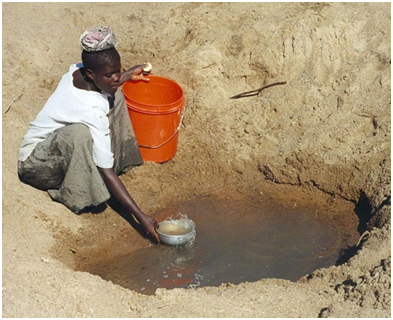Written By Rhiannon Meaden, Journal Development Editor, Environmental Evidence.
 Technology is inadequately assessed for effectiveness to reduce arsenic contamination in groundwater finds a new systematic review published in Environmental Evidence today. Many investigations into the effectiveness of these intervention strategies are poorly devised and thus cannot be relied upon to provide an evidence base for policy making.
Technology is inadequately assessed for effectiveness to reduce arsenic contamination in groundwater finds a new systematic review published in Environmental Evidence today. Many investigations into the effectiveness of these intervention strategies are poorly devised and thus cannot be relied upon to provide an evidence base for policy making.
In a number of developing countries worldwide, groundwater provides an alternative to drinking visibly polluted surface water. However, Arsenic is colourless and odourless and therefore is often ingested accidentally through drinking contaminated groundwater. Arsenic poisoning poses a threat to public health, and is a serious environmental hazard in many developing countries worldwide.
There are several methods available for removing arsenic from contaminated water. Researchers from the  University of Exeter compared 8 different technologies all of which claim to make drinking water safe. They found that most of the studies reviewed were found to be of poor quality and missing data and that only two technologies showed good evidence of effectiveness.
University of Exeter compared 8 different technologies all of which claim to make drinking water safe. They found that most of the studies reviewed were found to be of poor quality and missing data and that only two technologies showed good evidence of effectiveness.
But lack of data was not the only problem with these technologies. Dr Mark Pearson, who led this study, explained, “Combining the qualitative results it became clear that a major problem was the reluctance of the user. Many people in affected regions, even if aware of the problems with arsenic, believe that they will not be affected, or find the technologies too difficult to use and maintain.”
Dr Pearson continued, “It is imperative that more data is made available for decision makers to choose the most appropriate and effective technology for ensuring clean safe water. For any technology to be successful it also needs to take into account how acceptable the technology is to users, how people perceive the problem, the role of women in society and how to instil a sense of ownership into the community.”
Latest posts by Nicola Gorsuch (see all)
- Home gardens for food security - 17th June 2013
- The extent of arsenic pollution in contaminated groundwater - 31st May 2013
- Mosquito survey identifies reservoir of disease - 10th May 2013
Comments